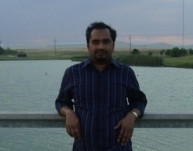India's stature as the world's largest democracy is redoubtable, except for perturbations -- attacks against minorities -- that often threaten the very foundation of democracy. The polarized mentality of certain sections of Indian politicians, coupled with the embittered communal history of the land, seems to shake the edifice of Indian democracy. Repeated attacks on the "freedom and existence" of minorities in India, unless effectively checked, pose not only a challenge to democracy but also a threat to the existence of minorities.
Recently, Mr. Vishweshwara Hegde Kageri, education minister of Karnataka -- a south Indian state referring to Muslims, Christians, Sikhs, and the secular Indians -- has remarked that all those opposing the one-hour compulsory reading of the Bhagvad Geeta, a Hindu scripture, in schools proposed by his ministry are foreigners and should leave the country. Such forcible imposition of the Hindu religious scripture in a secular and composite society ignores others' views and is completely against the spirit of secularism, a key feature of modern democracy upheld by the Indian constitution, which bestows the freedom of choice in religious matters on every citizen.
Such pro-Hindutva calls are not new in India. Barely a week ago, former central minister Dr. Subramanyam Swamy, a liberal academic turned right-wing-Hindutva politician, wrote an article entitled "How to Wipe Out Islamic Terrorism" , on the wake of the recent Mumbai blasts. Although the title of the piece emphasizes Islamic terrorism, the content of the tirade is horrific. It outlines a nefarious design for making India a "Hindu" nation, thereby virtually wiping out all Muslims, Christians, and non-Hindus, unless they embrace the Hindu legacy and accept Hindu-supremacy. This fanatic call towards an exclusive Hindu-India is yet another undemocratic and highly objectionable move against the cherished Indian tradition of religious and cultural inclusiveness.
The sad truth is that such propositions from influential politicians, intended to polarize the masses and foment communal tensions, are not merely irresponsible and divisive but are politically motivated. Because of these bigoted politicians, India is usually on a divisive track which turns all the efforts toward communal harmony futile. Besides, these notorious remarks are coming at a time when the country hasn't yet recovered from the pain and loss of lives and property in the July 13 Mumbai blasts. At such a crucial moment, when the whole country should come together to stand for the cause of national security and integrity, these poignant and divisive remarks from politicians are not just abominable, but criminal as well, and deserve legal action for promoting alienation and hatred.
Owing to such divisive mindsets, ever since the independence in 1947, India has been inflicted with successive communal riots. Both ethnic and religious communalisms have had their share of turbulence. If the massacre of almost 3,000 people in Nellie, Assam in 1983 is attributed to Bengali-Assamese ethnic rift, the anti-Sikh riots of 1984 in Delhi remains an indelible stain in the dark history of religious-political communalism in India. Although the Sikh victims received some compensation in 2010 after waiting for 25 years, justice for families and survivors of the Nellie massacre is still a dream.
The surge of communal-Hindutva-politics is marked by the demolition of Babri Masjid in 1992, a 465-year-old mosque in northern India. The aftermath of Babri-Masjid-Demolition cost thousands of Muslim lives in retaliation and counter-retaliation of the demolition. Then, the Bombay blasts of 1993, believed to be in retaliation to the Babri Masjid demolition, followed.
Although the political turbulence helped the right-wing-Hindutva party, the BJP, rise in power at Delhi, the minorities suffered immeasurably because of these bloody episodes. The culmination so far of the Hindutva communal politics is manifested with the Gujarat pogrom of 2002, in which the official account says that over 700 Muslims were killed. Independent agencies, however, claim that the death toll of Muslims was tens of thousands. Many were displaced and rendered shelterless - many of whom are still languishing in rehabilitation camps.
Irresponsible calls for the Hinduization of the country, like those of Dr. Swamy and Mr. Kageri, may help their parties win a few seats in the election, but far from strengthening India, these will promote only communal bigotry, disharmony and hatred among communities, which will ultimately lead to massive communal violence. As the relics of the past communal riots are still haunting India, the country cannot afford a fresh episode of communal violence.
These polemic calls, therefore, must be effectively checked with objective legislations, unbiased judiciary and responsible media. Otherwise, the hate politics, propagated via the Hindutva platform, will not only impede the democratic functioning of the country, but also threaten the millennia-old Indian civilization characterized by mutual coexistence.
There are bigger challenges before the country, such as abject poverty, acute illiteracy, inadequate infrastructure, pervasive corruption, mounting internal security threats like the Naxal movement, the ULFA, and serious external concerns with immediate neighbors like Pakistan and Bangladesh. If the integrity and power of the resilience of the nation is exhausted by inciting and fighting communal hatred within the country, then how will India fight the bigger challenges hindering its progress?





